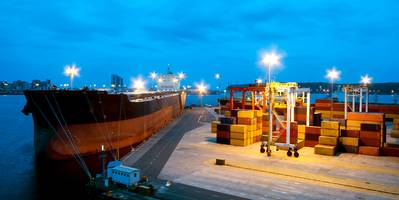European Shipowners Welcome EU Climate Target Proposal
The European Commission has published its proposal for a 2040 climate target: greenhouse gas emissions must be reduced by 90% by 2040 at the latest, receiving positive feedback from European shipowners.
The shipowners welcome the strong commitment of the Commission to address “barriers to the deployment of low- and zero-emissions fuels including e-fuels and advanced biofuels” in shipping and to give the sector “priority access to these fuels over sectors that have access to other decarbonisation solutions.”
The Commission acknowledges that the increased costs of sustainable fuels is a key factor for the competitiveness of shipping and commits to consider regulatory measures to foster their production. In this regard, European shipowners support the introduction of requirements for the fuel suppliers to make these fuels available in the market.
“It’s the first time we see such a strong commitment to give shipping priority access to low- and zero-emission fuels such as advanced biofuels and e-fuels. The price gap is immense, as the cost of sustainable fuels can be four times higher compared to fuels currently used in shipping. We look forward to working with the Commission to translate this commitment into immediate action, and to leverage the earmarked ETS revenues through dedicated calls already under the current Innovation Fund” said Sotiris Raptis, ECSA’s Secretary General.
ECSA endorses the Commission’s consideration of differentiated targets for shipping in alignment with the IMO GHG Strategy, under the three scenarios for the decarbonisation of the European economy. The IMO GHG Strategy, which was agreed in July 2023, sets up a target of net zero GHG by 2050, with objectives of at least 70% striving for 80% by 2040.
“After the historic agreement of last July, this is a strong message of support to the IMO to develop the measures necessary to reach net-zero GHG emissions from international shipping by 2050. It’s also an important step forward to ensure European shipping operates on a level playing field,” added Raptis.
The Commission acknowledges the need for Europe to become more attractive for private investments. Over the course of the last 15 years, European ship finance has been continuously declining, with shipping companies having to seek finance opportunities elsewhere. Unlocking private investments through the capital markets is a good step forward, says ECSA. However, it is essential that this is coupled with a fit-for-purpose framework for banking finance, which is especially key for shipping SMEs.














